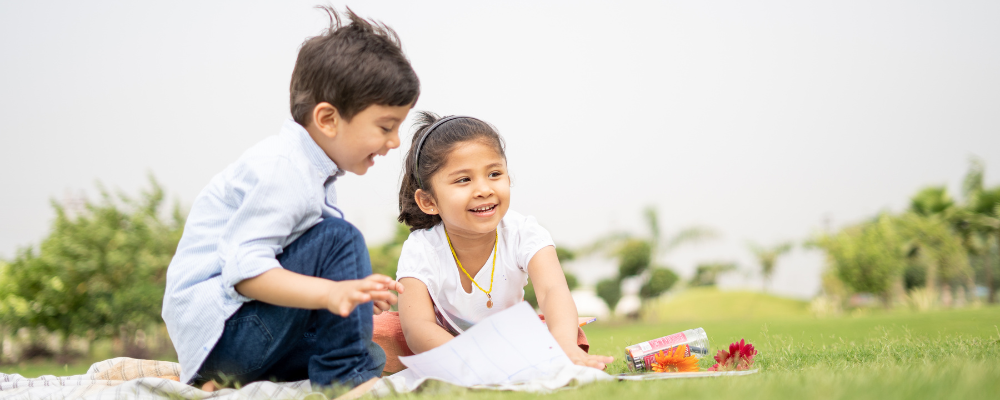Children learn best when they can see, touch, and experience the world around them. While classroom lessons are valuable, stepping outside the classroom can offer a whole new dimension of learning. That’s why field trips are an essential part of the Montessori approach—they take learning beyond the books and into real life.
At Orrchid Montessori House, we believe that field trips are not just outings. They are extensions of what we learn indoors, designed to deepen curiosity, build connections, and inspire wonder. Let’s explore how field trips support a child’s development and enrich their Montessori journey.
Learning Comes Alive
In the classroom, children learn about plants, animals, seasons, and community helpers. But on a field trip, they get to see those lessons come to life. Visiting a farm allows them to feed animals and observe how vegetables grow. A trip to a bakery shows them how flour turns into bread. These real-world experiences strengthen understanding and leave lasting impressions.
When children see and experience something in person, they understand it more deeply. It is no longer just a picture in a book. It becomes part of their lived memory.
Builds Curiosity and Observation Skills
Montessori education encourages children to ask questions, explore, and notice details. Field trips offer rich environments where this natural curiosity can flourish. Whether they are watching fish at an aquarium or observing birds in a park, children begin to ask:
-
Why does this happen?
-
How does it work?
-
What can I learn from this?
They also practice observation and reflection, key Montessori habits that strengthen focus and independent thinking.
Supports Practical Life Learning
Field trips give children a chance to apply real-world skills. From packing their own bags and putting on shoes to following safety rules and walking in groups, they practice independence, responsibility, and care for their surroundings.
Even simple things—like holding hands while crossing a street or buying a snack—become meaningful lessons in everyday life.
Encourages Social Development
Field trips bring children together in a new setting. They talk, ask questions, work in pairs, and share discoveries. This promotes communication, cooperation, and empathy. Children also interact with new adults—guides, drivers, shopkeepers—which builds social confidence.
These shared experiences help strengthen classroom friendships and create a sense of community.
Connects to the Montessori Philosophy
Dr. Maria Montessori believed that education should connect children with the world around them. She wrote about the importance of taking children out into nature, into the community, and into spaces that inspire wonder.
Field trips reflect this vision. They are not rewards or distractions. They are carefully chosen experiences that support the lessons and values children are already learning.
For example:
-
A lesson on animals is enhanced by a zoo or wildlife sanctuary visit.
-
A unit on seasons is brought to life with a nature walk in a local park.
-
A story about baking is expanded with a real bakery visit.
These trips support the whole child—mind, body, and spirit.
Tips for Parents: How to Extend the Learning at Home
After a field trip, continue the conversation at home:
-
Ask your child what they saw, heard, and felt.
-
Encourage them to draw or write about their experience.
-
Read a book or do an activity related to the place they visited.
-
Display photos or keepsakes from the trip and talk about them often.
This helps your child reflect and absorb what they’ve learned.
Final Thoughts
At Orrchid Montessori House, field trips are thoughtfully planned to match the developmental stage and interests of the child. We don’t just go places. We go with purpose.
Every field trip becomes a story, a memory, a lesson. It helps children connect their learning with the world around them and reminds them that learning can happen anywhere.

